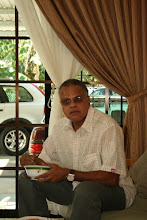I finished my internal medicine training 30 years ago. I have taught residents continuously since 1980. Most physicians from my cohort will tell you that our training was more difficult.
Training then
I worked every 3rd night as an intern, then averaged every 4th as a resident. The only days I ever got off were Sundays after Friday night call. We had no caps, and occasionally did admit more than 5 patients in a 24 hour period. We were explicitly expected to stay at least until 5 p.m. on our post call day. We averaged over 100 hours each week.
Training now
My interns work every 4th night, but only stay over night on Fridays, Saturdays, and half of the remaining days. They have a cap of 5 admissions. They must leave work at 1 p.m. on their post call day. They get at least 4 days off each month. They have a 80 hour work week cap.
Training then
We had little pressure to discharge patients. We had no utilization review nurses. Length of stay probably averaged a week.
We had many less diagnostic tests and fewer treatments. We had no CT, no MRI and limited ultrasound (really only M-mode echo.) We never had to use vancomycin (no MRSA.) We had no HIV.
We treated MI patients with lidocaine, morphine and nitrates, but talked a lot about how great it would be if we could decrease infarct size. Our major hospital did 3 cardiac caths each day. We had no interventional cardiology.
CHF patients had an average life expectancy of 6 months after their admission. We used digoxin and furosemide. ACE inhibitors became available in 1988. Beta blockers became available during my senior residency year, but they were absolutely contraindicated in CHF.
COPD patients usually developed cor pulmonale, because we had no home oxygen.
We treated hypertension with alpha methyldopa and a thiazide.
We had no histamine 2 blockers, no PPIs, and no 3rd generation cephalosporins.
Training now
Obviously, our residents have the things that we did not have, and much more. Current residents have much greater supervision (and thus too often micromanagement.) Current residents experience a much shorter length of stay, and have great pressure to discharge patients quickly.
We can do much more for each patient, and we make much more accurate diagnoses.
Which is better, more difficult, more appropriate
This comparison is impossible, because the context of the comparison has changed so greatly. In the 70s, our senior attendings puffed out their chests and bragged about how much harder their training was. Now most of my cohort would say the same thing about current trainees.
The older generation always view their history as being more relevant and more stringent.
I believe that internal medicine training has always required hard work, both intellectually and much time. To try to compare then and now is really not possible.
I personally believe that training is more difficult than ever. Our residents are dedicated to learning our difficult specialty. They struggle with the current social context of patient care.
Our field has changed. We have more responsibility because we can do more. Our subspecialists have deeper knowledge of their subspecialty field, but generally narrower knowledge of the breadth of internal medicine.
I hope that those of my generation will chime in. I hope that current and recent trainees will comment also.
Taken from blog site. It almost what i would have said.


0 comments:
Post a Comment